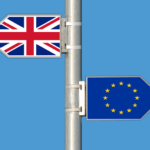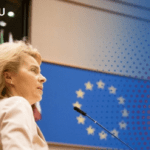Civil Liberties Committee MEPs express their concern about the current situation of internal border controls in the Schengen area and their impact on people and businesses, in a resolution adopted on Thursday by 53 votes in favour, 6 against and 6 abstentions.
They stress that a swift and coordinated return to a fully functional Schengen area is of utmost importance to safeguard freedom of movement, one of the main achievements of European integration, and to ensure the EU’s economic recovery after the pandemic.
While demanding that member states reduce restrictions on the freedom of movement to the same extent that COVID-19 containment measures are being relaxed, MEPs suggest that a regional approach may be more proportionate than national border controls. Restrictions on freedom of movement could be lifted where the public health situation in neighbouring regions has comparably improved.
MEPs also urgently call for a debate on setting up a Recovery Plan for Schengen and the ways and means to return to a fully functioning Schengen area as quickly as possible, to prevent temporary internal border controls from becoming semi-permanent. The plan should also include contingency plans in case of a potential second wave.
Civil Liberties Committee Chair and rapporteur Juan Fernando López Aguilar (S&D, ES) said: “For the vast majority of EU citizens, the Schengen area constitutes one of the greatest achievements in the history of the EU, and it has never before experienced the outbreak of such a serious pandemic on its territory. I strongly deplore any unilateral or disproportionate measures by individual Member States to impose border restrictions upon other Member States without communication or a clear and limited timeframe. All actions meant to restore a fully operational Schengen area must be coordinated at EU level and fully respect the principle of non-discrimination”.
Future of Schengen: new governance and enlargements
In the medium-term, MEPs stress that a reflection on how to enhance mutual trust between member states and ensure a truly European governance of the Schengen area is needed. In light of new challenges, they call on the Commission to propose a reform of Schengen governance.
MEPs also ask in their resolution for the Council and member states to increase their efforts in Schengen integration and take the necessary steps to admit Bulgaria, Romania and Croatia into Schengen. Except for these three countries, Cyprus and Ireland, all EU countries are part of the Schengen area. Of non-EU states, Iceland, Norway, Switzerland and Liechtenstein have joined Schengen.







Leave a Reply